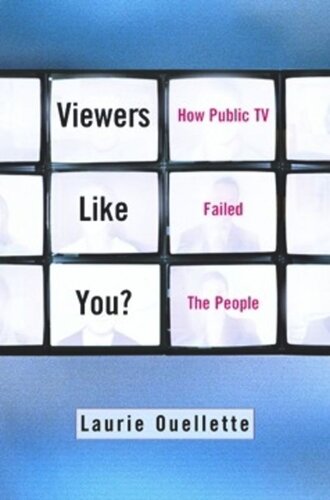

Most ebook files are in PDF format, so you can easily read them using various software such as Foxit Reader or directly on the Google Chrome browser.
Some ebook files are released by publishers in other formats such as .awz, .mobi, .epub, .fb2, etc. You may need to install specific software to read these formats on mobile/PC, such as Calibre.
Please read the tutorial at this link: https://ebookbell.com/faq
We offer FREE conversion to the popular formats you request; however, this may take some time. Therefore, right after payment, please email us, and we will try to provide the service as quickly as possible.
For some exceptional file formats or broken links (if any), please refrain from opening any disputes. Instead, email us first, and we will try to assist within a maximum of 6 hours.
EbookBell Team

4.8
34 reviewsHow "public" is public television if only a small percentage of the American people tune in on a regular basis? When public television addresses "viewers like you," just who are you? Despite the current of frustration with commercial television that runs through American life, most TV viewers bypass the redemptive "oasis of the wasteland" represented by PBS and turn to other, more "popular" media, Viewers Like You? traces the history of public broadcasting in the United States, questions its priorities, and argues that public TV's tendency to reject popular culture has undermined its capacity to serve the people it claims to represent.
How "public" is public television if only a small percentage of the American people tune in on a regular basis? When public television addresses "viewers like you," just who are you? Despite the current of frustration with commercial television that runs through American life, most TV viewers bypass the redemptive "oasis of the wasteland" represented by PBS and turn to the sitcoms, soap operas, music videos, game shows, weekly dramas, and popular news programs produced by the culture industries. Viewers Like You? traces the history of public broadcasting in the United States, questions its priorities, and argues that public TV's tendency to reject popular culture has undermined its capacity to serve the people it claims to represent. Drawing from archival research and cultural theory, the book shows that public television's perception of what the public needs is constrained by unquestioned cultural assumptions rooted in the politics of class, gender, and race.